Is there a link between COVID-19 and depression?
You might still not feel entirely normal even though your COVID-19 symptoms have subsided. You may experience headaches, tiredness, nervousness, or a general sense of dread that makes it hard to perform everyday duties. Although experts are still investigating the long-term effects of COVID-19 on cognitive function, more than half of COVID-19 survivors in a US sample reported symptoms of depression after recovering, the more severe the COVID symptoms, the greater the possibility for depression.
Additionally, researchers found that COVID-19 survivors experienced anxiety, insomnia and obsessive-compulsive symptoms. Since the start of the pandemic, other studies indicate an increase in antidepressants prescribed, intimate partner violence, as well as suicidal thoughts.
Those who have had the COVID-19 virus appear to have a greater risk of developing mental health issues after they recover.
Related: How Pandemic COVID-19 Affects Our Dreams
What causes depression in COVID-19 survivors?
According to experts, a COVID-19 infection can have two major effects on your mental health:
- The immune response of your body to a virus
- Psychological stress associated with COVID-19 infection
The immune system produces inflammation-promoting cytokines and chemokines when it is infected by the COVID-19 virus. Those with COVID-19 have an abnormally high level of cytokines secreted by T-helper-2 cells. A higher degree of virus severity was associated with higher levels of these cytokines. According to experts, your body can become sick if it does not control these cytokines correctly:
- Nerve inflammation
- Disrupted blood-brain barrier
- Central nervous system invasion by peripheral immune cells
- Impairment of nerve transmission
- Deficiency of hippocampal-pituitary-adrenal (HPA) axis
- Induction of indoleamine 2,3-dioxygenase (IDO) in microglia
Psychiatric disorders such as depression are caused by any of these factors. Even after recovering from the COVID-19 virus, a person might suffer from depression due to the actual effects of the virus.
During a study, experts connected higher indices of systemic immune-inflammation (SII), a measure of inflammation and immune response, to major depression. During the COVID-19 illness, inflammation factors such as SII were more prevalent in males and people who stayed in hospitals.
Related: Corona Virus Effects on Brain
How the new coronavirus affects the mind
It is possible to become anxious and stressed simply by being diagnosed with a novel, potentially life-threatening disease.
According to Jessica Stern, PhD., a psychologist and clinical assistant professor at NYU Langone Health and an expert on the pandemic, there is little or no framework for managing the threat to health, lifestyle and society.
The negative test-takers are forced to isolate, which adds to their anxiety and depression. Many victims turn to their loved ones for support during recovery.
Dr. Gail Saltz, associate professor of psychiatry at NY Presbyterian Hospital and podcast host of the Personology podcast, says most COVID patients know they should avoid transmitting the disease and thus lack such comfort and support.
Those with moderate to severe symptoms may also find it difficult to combat the disease itself.
The management of COVID-19 is more likely to be traumatic than other medical conditions, according to Stern, because of the potential severity of the condition, the novelty of the condition, and the uncertainty associated with its treatment.
There are many COVID-19 patients, now called “long haulers,” who suffer long-term symptoms and struggle to function normally.
“The recovery from COVID may take up to several months, and this can lead to a variety of challenges, such as difficulty returning to work, difficulty caring for children, or difficulty resuming one’s normal routine,” says LeMonda.
Related: COVID-19 Stress
The effects of new coronavirus on the brain
Vaccines aren’t just for respiratory illnesses; they can affect many vital organs, including the brain.
Several reports have reported neurological complications among patients with COVID-19. There may also be other cognitive impairments, such as dizziness, confusion and delirium.
Despite the fact that researchers are still trying to fully understand the novel coronavirus’ effect on the brain, they suspect the new virus may damage brain blood vessels and cause swelling.
“The virus could cause significant neurological and psychiatric problems if it directly impacts the central nervous system,” LeMonda explains.
A compromised respiratory system may also lead to a reduction in oxygen supply to the brain, LeMonda says.
The relationship between immunological function and mental health is also strong according to Stern.
A person’s circadian rhythm can be disrupted by CVID-19, which can lead to problems sleeping, insomnia, and s such as depression, anxiety, or other changes in cognition.
Related: COVID-19 and Your Mental Health
Other viruses impact mental health, too
There are several viruses that can affect the mind and brain.
The Middle East respiratory syndrome (MERS) and severe acute respiratory syndrome (SARS) – two other diseases with life-threatening symptoms – can also cause delirium, anxiety, depression, mania, insomnia, and other memory-related problems.
LeMonda said any virus attacking the nervous system, causing hypoxia in the brain, or affecting physical function can affect mental health.
Psychiatric disorders may increase the likelihood of developing COVID-19 in individuals with preexisting disorders.
COVID-19 can also be diagnosed in people with attention deficit hyperactivity disorder, depression, schizophrenia, and bipolar disorder, according to a study from October.
Specifically, high levels of anxiety increase cortisol levels, which can lead to reduced immunity, which may contribute to the condition, explains Saltz.
COVID-19 is more likely to affect people who are anxious or depressed.
Read: How to Stop Worrying About COVID-19
Get treatment for yourself
COVID-19 patients should listen to their doctors and prioritize their physical health: Eat a well-balanced diet, maintain a regular sleep schedule, and stay physically active.
Trying deep breathing, mindful meditation, and muscle relaxation are some relaxation techniques Saltz recommends.
Keeping in mind that recovery can take weeks or even months is important.
It’s helpful to understand the recovery process to reduce anxiety and improve mental health, LeMonda says.
Read: COVID Anxiety Syndrome
The bottom line
A new study suggests that people recovering from COVID-19 may suffer from anxiety or mood disorders afterward.
Scientists still do not know exactly how the new coronavirus affects the brain and the nervous system, but they do believe that it inhibits blood and oxygen circulation to the brain and might result in brain swelling in some cases.
It is also stressful to be diagnosed with a novel disease, since it may be life-threatening, and those who are diagnosed are asked to isolate themselves from loved ones. It is not uncommon for symptoms to last for months, causing disruption in daily life and functioning and putting people at risk for mental issues.
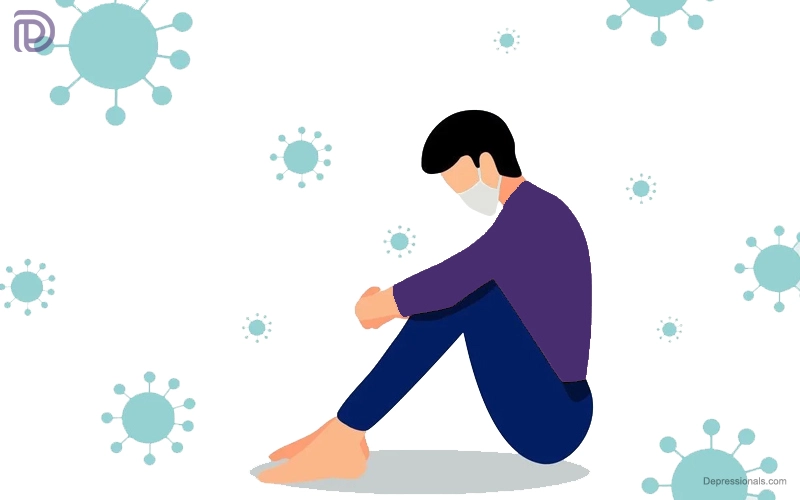
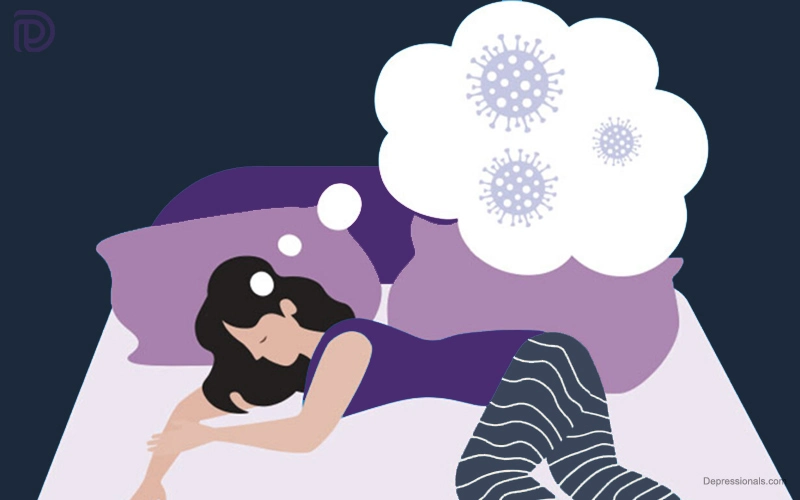
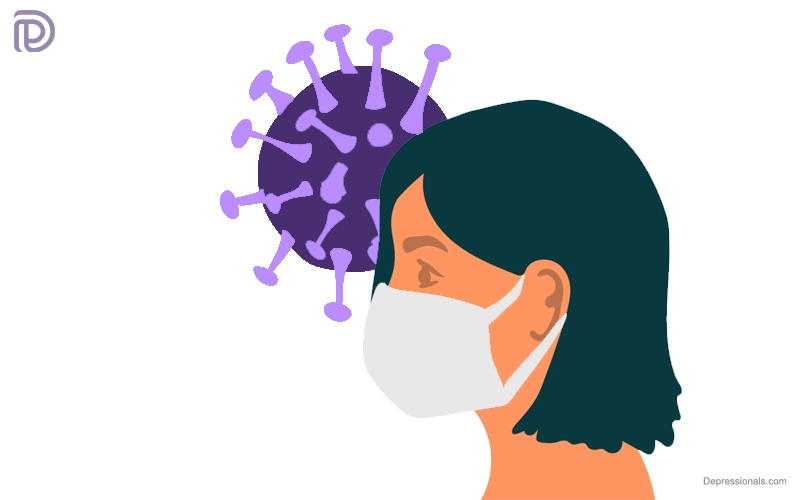
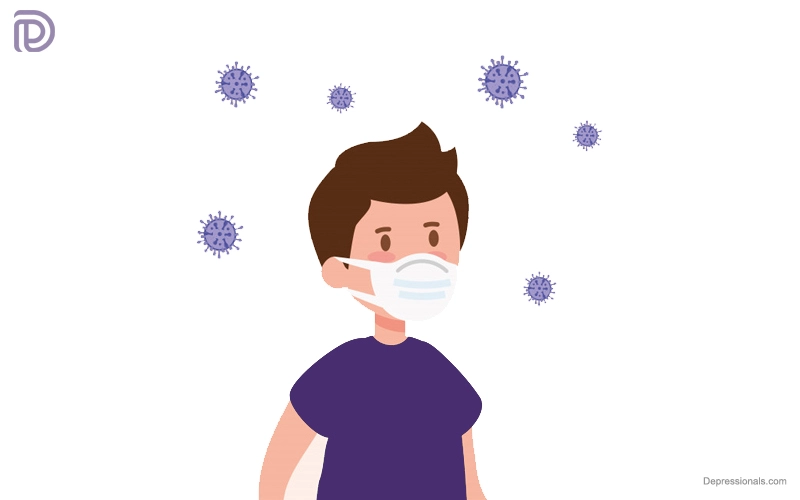
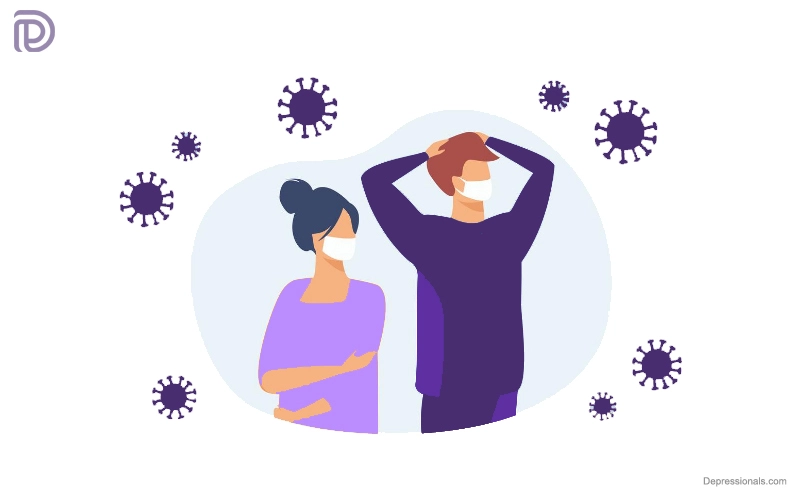

Great – I should definitely pronounce, impressed with your web site. I had no trouble navigating through all tabs and related info ended up being truly simple to do to access. I recently found what I hoped for before you know it in the least. Reasonably unusual. Is likely to appreciate it for those who add forums or something, site theme . a tones way for your client to communicate. Excellent task..
Greetings! Very helpful advice on this article! It is the little changes that make the biggest changes. Thanks a lot for sharing!